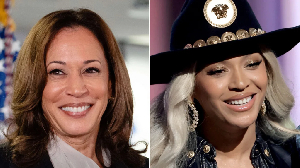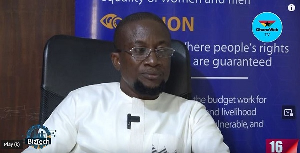Vice President Kamala Harris made a big entrance during her first official visit to her campaign headquarters on Monday evening, walking out to Beyoncé’s song “Freedom.”
A source close to Harris told CNN that her team got approval from Beyoncé’s representatives to use the song throughout her presidential campaign.
Beyoncé, who is known for maintaining strict clearance guidelines around her music, gave quick approval to Harris’ campaign when they sought permission to use “Freedom” on Monday — just hours before she walked out to the song, the source added.
While Beyoncé has not officially endorsed Harris in the day since President Joe Biden announced he would not seek a second term, granting her permission to use “Freedom” as a campaign song indicates that Harris has the superstar’s support.
Neither the Harris campaign nor a representative for Beyoncé responded to CNN’s requests for comment.
Beyoncé’s mother, Tina Knowles, endorsed Harris on Sunday, shortly after Biden’s announcement.
“New, Youthful, Sharp , energy !!!!” Knowles posted on her Instagram with a photo of herself alongside Harris. “Putting personal Ego, power, and fame aside. That is the definition of a great leader, Thank you, President Biden, for your service and your leadership. Go Vice President Kamala Harris for President. Let’s Go”
Beyoncé has a history of endorsing Democratic candidates. In 2013, she sang the National Anthem at the inauguration of President Barack Obama. In 2016, Beyoncé and her husband Jay-Z headlined a pre-election concert for Clinton in Cleveland, Ohio, with her backup dancers dressed in blue pantsuits to honor the woman who could have been the first female president.
“I want my daughter to grow up seeing a woman lead our country and knowing that her possibilities are limitless,” Beyoncé said at the time. “And that’s why I am with her.”
In 2020, Beyoncé endorsed the Biden-Harris ticket, posting on her Instagram to encourage her followers to vote.
“Freedom,” featuring Kendrick Lamar, debuted on Beyoncé’s 2016 album “Lemonade.” The Grammy-nominated song became an anthem in many demonstrations following the 2020 death of George Floyd.
Africa News of Tuesday, 23 July 2024
Source: edition.cnn.com

















